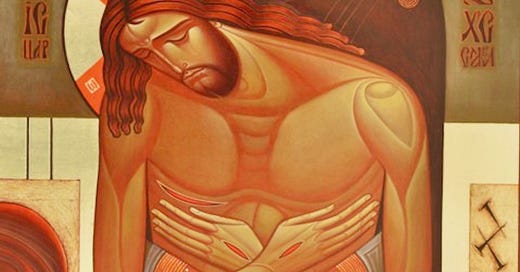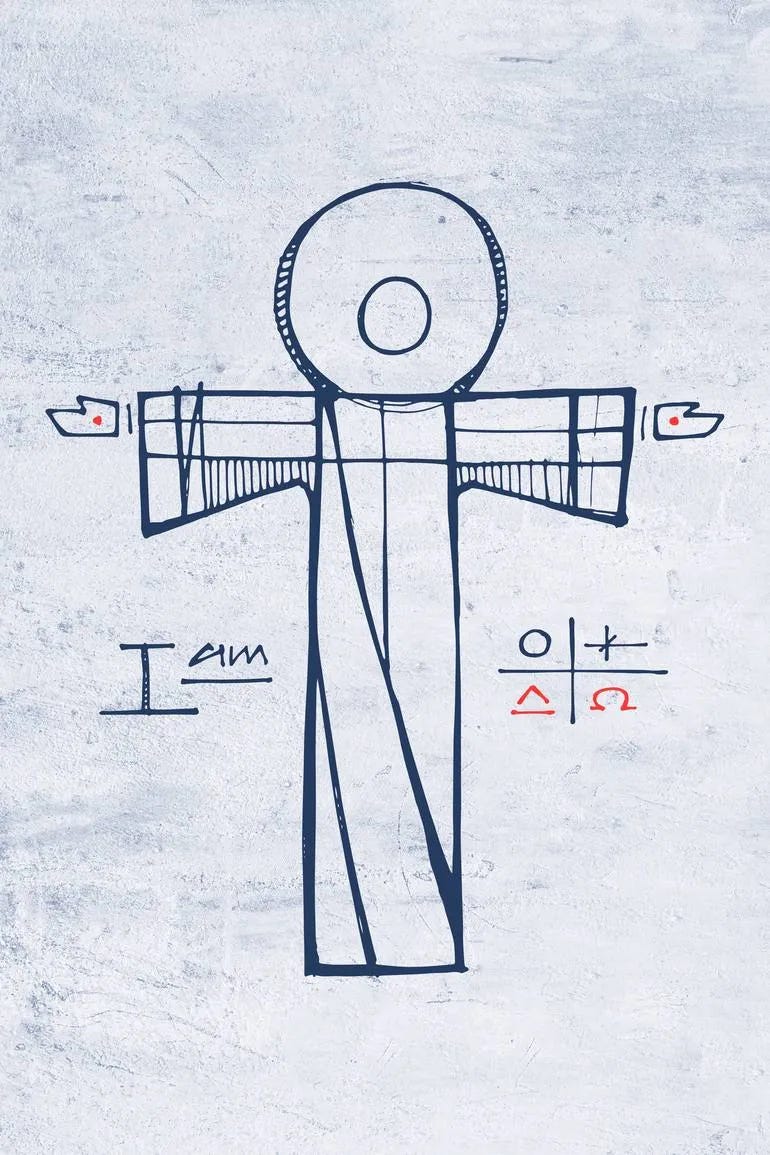Unpacking the Bible Belt Baggage of "You Must be Born Again"
"We" are swept up in Jesus's "you"
The lectionary Gospel passage for the Fourth Sunday of Lent is John 3.14-21:
“And just as Moses lifted up the serpent in the wilderness, so must the Son of Man be lifted up, that whoever believes in him may have eternal life. For God so loved the world that he gave his only Son, so that everyone who believes in him may not perish but may have eternal life. Indeed, God did not send the Son into the world to condemn the world, but in order that the world might be saved through him. Those who believe in him are not condemned; but those who do not believe are condemned already, because they have not believed in the name of the only Son of God. And this is the judgment, that the light has come into the world, and people loved darkness rather than light because their deeds were evil. For all who do evil hate the light and do not come to the light, so that their deeds may not be exposed.
But those who do what is true come to the light, so that it may be clearly seen that their deeds have been done in God."
Question:
Is eternal life contingent upon my decision to believe?
Do you need, as Jesus says earlier in the passage, to be born again to be saved?
Earlier in the chapter, Nicodemus says to Jesus, “I’ve seen the signs you do. Tell me, who are you?”
And oddly, Jesus answers in verse 5 of this chapter with that verse which tightens the sphincter of every good, liberal Protestant:
“Very truly I tell you, no one can see the Kingdom of God without being born again.”
Apparently, Nicodemus knows what he doesn’t know. Nicodemus must suspect his faith is somehow inadequate and lacking; otherwise, Nicodemus— a Pharisee, a member of the Sanhedrin even— would not take the great risk of coming to Jesus under the cover of darkness. Sure, it’s only chapter three, but here in John’s Gospel Jesus has just thrown his temple tantrum and already he’s made himself public enemy number one. But Jesus, in typical Jesus fashion, doesn’t do anything at all to mitigate whatever spiritual crisis has led Nicodemus to Jesus. He doesn’t bother to comfort Nicodemus or reassure Nicodemus or do anything to relieve whatever religious tension has brought Nicodemus to Jesus.
“Oh, you’re one of those seekers, are you, Nicodemus? Well, try this on for size: “No one can see the Kingdom of God without being born again.”
Notice how Jesus tightens the screws on whatever worry has prompted Nicodemus to seek out this marked Messiah.
Jesus doesn’t do what United Methodist pastors are trained to do. Jesus doesn’t let Nicodemus off the hook with some bland assurance like, “It’s okay. Don’t worry, Nicodemus, be happy. God loves you.”
Jesus doesn’t offer Nicodemus a non-anxious presence and say, “Your faith is fine just as it is, Nicodemus. We’re all on a journey. There are many paths to my Father.”
No, Jesus sticks his thumb in whatever existential wound Nicodemus is nursing and raises the stakes absolutely, “If you want to see the Kingdom of God, Nicodemus, you must be born again.”
Oh, and FYI, he’s not just talking to Nicodemus.
Jesus dials it up to DEFCON ETERNAL for all of us because that “you” in “You must be born again” is plural.
We are swept up in that you.
It’s, “You all must be born again if you want to see the Kingdom of God.”
No exceptions.
No loopholes for raking your neighbor’s yard or never missing a Sunday service.
That you— it’s all of us.
“You all must be born again.”
And Nicodemus, he’s a Pharisee. He’s super religious so he responds— like we religious types always respond— with what he’s supposed to do.
“How do I do that, Jesus? Crawl back up into my mother’s womb?”
To which Jesus says, “Ewww.” (John doesn’t mention it, but I’m sure Jesus said it.)
And then Jesus says:
“Very truly, I tell you, no one can enter the kingdom of God without being born of water and Spirit. What is born of the flesh is flesh, and what is born of the Spirit is spirit. Do not be astonished that I said to you, “You all must be born again.”
Pay attention to the verbs Jesus uses on Nicodemus— on us— in verses three and five.
The verbs are what makes this passage good news for everybody.
Keep reading with a 7-day free trial
Subscribe to Tamed Cynic to keep reading this post and get 7 days of free access to the full post archives.





